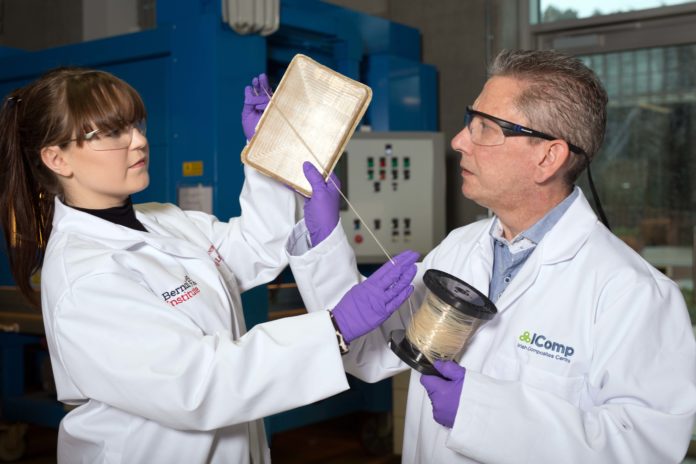
RESEARCHERS at University of Limerick have developed a solution for the conversion of waste plastic bottles into high performance composites for many applications including car and off-the-road vehicle parts.
The Irish Composites Centre (IComp) in University of Limerick’s Bernal Institute now envisages energy-efficient conversion of plastic bottles into useful products including car and tractor parts. This advanced research initiative has the potential to have a real impact on solving one of the world’s leading environmental problems – responsible disposal of used plastics – and it has won funding from Enterprise Ireland and the Environmental Protection Agency to further support its development.
As well as environmental benefits, the project is also considered to have significant commercial potential on an international basis and IComp is currently seeking a range of industry and commercial partnerships to bring this initiative to the next level.
IComp’s work involves commercialising the recycling of the plastic material polyethylene terephthalate (PET), commonly used for water and soft drinks bottles and other single-use products, through the development of a technology that allows these plastics to be recycled into a high tensile fibre that can then be woven into a fabric.
“Ireland is currently the biggest producer of plastic waste in the European Union, with an average of 61 kg produced each year per person. A large proportion of this plastic is made up of single-use plastic bottles which, apart from polluting the landscape and seascape visually, also degrade over time and leach in the environment, creating many downstream problems for nature, animals and humans,” Dr Walter Stanley of IComp explained.
“The technology developed by IComp aims at recycling plastic bottles (mainly PET) into a high tensile fibre which can then be used in a wide variety of value-added products. If successfully commercialised, this project would turn plastic bottles into a valuable raw material and stimulate greater recycling. It would lead to incentives for better plastic collection and separation and therefore less littering, general pollution and incineration.”
The self-reinforced composites which IComp are currently developing are more energy efficient to process and will have a lower cost than other products on the market whilst also being significantly greener with a high level of rigidity, strength and temperature performance for many applications including car parts, which will themselves be recyclable when the cars is scrapped.










